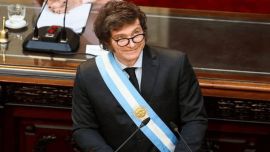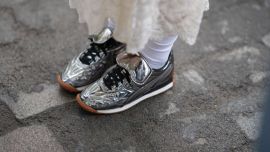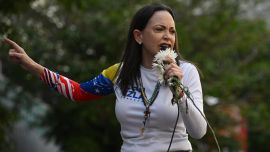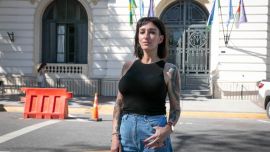Cabinet Chief Guillermo Francos faced a Congress grilling on Tuesday as he defended President Javier Milei’s role in promoting the failed cryptocurrency '$LIBRA,' though he left several questions unanswered and critics dissatisfied.
“The President does not and did not maintain any link with the project,” Francos told deputies, firmly rejecting claims that presidential involvement in the scheme was inappropriate.
The hearing was part of an ongoing probe ordered by lawmakers into the collapse of the '$LIBRA' memecoin last February 14, which followed a now-deleted post by Milei on X endorsing the coin.
The token briefly surged in value before plummeting 90 percent of its value in two hours, with estimated losses for investors running into the hundreds of millions of dollars.
Milei subsequently deleted his original post and stated that he “was not aware of the details of the project.”
Dozens of legal complaints have been filed against the President and the other parties involved, both in Argentina and the United States.
Congress approved the formation of an investigative committee last month to determine whether Milei acted in good faith in the so-called “cryptogate” scandal.
Several government officials have been summoned to testify, though some did not turn up on Tuesday.
‘Raise awareness’
Francos told lawmakers the President had simply “published a post on his personal X account, as he’s done many times before, to raise awareness of a project that – according to what he’d been told – aimed to boost the Argentine economy by funding small businesses and local ventures.”
He insisted there had been “no coordination, intervention or participation by the national government ... nor was there any contractual relationship, economic benefit, compensation, commitment, agreement or participation of any kind.”
Despite that, Francos acknowledged that Milei had met with '$LIBRA' promoters Julian Peh, a Singaporean entrepreneur, and US businessman Hayden Mark Davis, as well as Mauricio Novelli, an Argentine said to have introduced them to the President months before the coin’s launch.
The Cabinet chief said Milei deleted the post “in light of the fall-out from the project’s launch, having had no role in the cryptocurrency’s development, to avoid speculation and give it no further exposure.”
Francos then appeared to contradict himself when asked about the origins of Milei’s involvement. Insisting the president acted independently and with no prior arrangement, he had earlier admitted that Milei had learned about the “Viva La Libertad” project — another name for the coin – in a series of meetings with crypto entrepreneurs from September 2024 onward, including during a Tech Forum in October organised by Novelli.
Milei himself revealed on X that he had a “very interesting” meeting with Davis at the Casa Rosada on January 30.
“He advised me on the impact and applications of blockchain technology and artificial intelligence in the country,” he wrote in a post on social media.
Novelli is the co-founder of N&W Professional Traders, a financial training company where Milei taught classes before entering politics. The President previously confirmed that he has known his “for years.”
Critics unsatisfied
Opposition deputies repeatedly pressed Francos on why Milei’s original post included specific details required to access the crypto token — despite the head of state using his official account and presidential profile to promote what Francos claimed was “a private business.”
Francos said the President had simply shared public information, but was quickly challenged. “There’s no record of that contract being published before Milei tweeted it on February 14,” pointed out opposition Unión por la Patria (UxP, Peronist) lawmaker Itai Hagman.
Asked how the President first heard about the project, Francos replied that it was “public knowledge,” though he was unable to provide an example to support that claim.
Francos denied any intention to defraud investors and said purchasing the cryptocurrency involved “a highly complex process with steps completely inaccessible to anyone unfamiliar with crypto-asset trading.”
Yet his repeated admission of ignorance over key details raised questions. Pressed about the fate of the millions of dollars raised during the coin’s brief window of viability, Francos replied bluntly: “I have no idea.”
Other opposition lawmakers criticised Francos for his lack of preparation.
He went on to criticise the opposition’s handling of the scandal, accusing them of turning the hearings into “a media tribunal” designed purely for “political gain and electoral speculation.”
Francos, who warned the investigative committee not to exceed its mandate, also defended Presidential Chief-of-Staff Karina Milei, who authorised the crypto promoters’ visits to the Casa Rosada.
“Between December 10, 2023 and December 31, 2024, the presidential chief-of-staff authorised 494 entries to the Casa Rosada,” Francos stated. “It’s worth pointing out that both the President and all members of the national administration regularly meet with private-sector individuals involved in projects that could benefit the country. Obviously, no commitment is made simply by holding a meeting, nor does it imply any formal relationship.”
The session began with a two-hour procedural dispute over whether Economy Minister Luis Caputo and Justice Minister Mariano Cúneo Libarona should be compelled to appear. Both had been summoned but declined to attend, citing prior commitments.
– TIMES/AFP/NA
























Comments